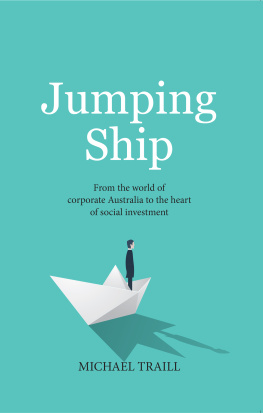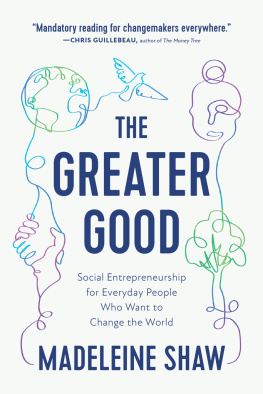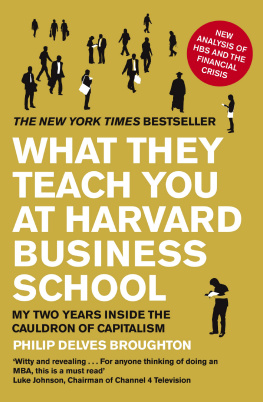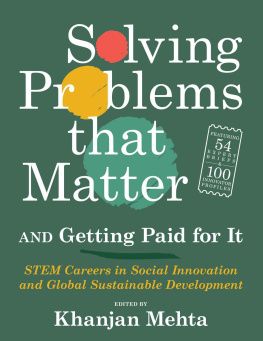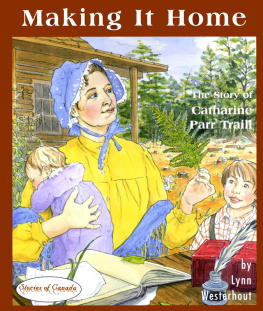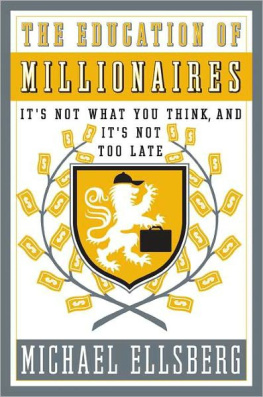For Jen, Chris, Anna and Nick
To understand a parents love, you must raise children yourself.
Chinese Proverb

In memory of:
David Stuart Clarke (19422011)
John Skipper Kelly (19602010)
Shane ONeill (19612012)
Lives of great men all remind us
We can make our lives sublime,
And, departing, leave behind us,
Footprints in the sands of time.
Henry Wadsworth Longfellow, A Psalm of Life
Context is everythingespecially the formative context of childhood. That famous boast of the Jesuits, attributed to Francis Xavier, Give me the child until he is seven and I will give you the man, is so often quoted precisely because we all recognise how close it is to the truth.
For Gustav Mahler, a childhood spent within earshot of military barracks led to the inclusion of a military march in all his symphonies. For Michael Traill, the influential music was very different, but its impact no less significant: in the trajectory of the life laid out in Jumping Ship, the formative influences of a loving family, modest circumstances, a state-school education, a strong sense of engagement with the local community in the mining town of Morwell and, later, an awareness of disadvantage and deprivation in the town can all be clearly discerned. As can the early love of sport, of action, and of winning.
In the late 1980s, the lure of a career in merchant banking was irresistible to the ambitious young Traill, and he soon found himself working absurd hours at the so-called millionaires factory, Macquarie Bank. But a career devoted to money-makingfor himself and his clientswas never going to satisfy Michaels deeper yearnings: his passion for social justice; his determination to make the world a better place; his vision for bringing the rigour and hard-headedness of the world of finance to the world of philanthropy and social entrepreneurship.
Those deeper yearnings were crystallised for Michael by one of his mentors, Norman Drummond, who spoke of the satisfaction that comes from finding ways of connecting head and heart. This was one of those elegantly simple ideas that struck a responsive chord in Michael, and became a guiding principle for him.
His co-founding of Social Ventures Australia and his work as CEO for the first ten years of SVAs life might have been enough to satisfy the passion to make a difference for most of us. On the tenth anniversary of SVAs formation I wrote that the organisation has helped reshape the Australian not-for-profit landscape and added a new dimension to the power of philanthropy. That was no understatement. The genius of SVA was in going beyond the process of merely putting donors in touch with worthwhile projects. Its model was to support philanthropy with clear-eyed business acumenthrough strategic advice and active development of the management skills of the people running the organisations sponsored by SVA.
It was not just a way of connecting head and heart, it was a revolutionary approach to closing the gap between privilege and poverty, harnessing not only the wealth but also the expertise of business leaders.
But Michael Traill did not stop there. The story of SVAs move, in partnership with several other not-for profit organisations, to rescue the collapsed and discredited ABC Childcare group and convert it into the GoodStart chain of child-care centres, reads like a corporate thriller. If you want to know how the heavy hitters operate in the world of business, read chapters 913: the names, the strategies, the tensions, the tactics, the stumbles, are all there. But this is far from being just another takeover story: its the story of how a group of financial high-fliers, driven by their social conscience, found a way to run a multi-million dollar business devoted entirely to the creation of social good rather than profit.
In the Australian way, Michael Traills friends call him Trailly. They should call him Blazer, for a trailblazer is what he has been, ever since he left the family home in Morwell to tackle the challenge of college life at Melbourne University. The two big questions raised by Jumping Ship are: What trail will Michael blaze next? And how might any of us strive to become more successful at connecting head and heart?
Hugh Mackay AO
Social researcher
The Town and Gown speaking invitation was a big one and I was pretty nervous about getting my messages right.
Melbourne University was my undergraduate alma mater and the universitys Town and Gown dinner collected 500 of Melbournes leading business, government and academic figures in the plush surrounds of the Great Hall of the Victorian Arts Centre. It is an annual signature event that celebrates and promotes partnerships between the university (the Gown) and business (the Town).
The invitation arose out of a graduation address I had given the year before, which seemed to have been well received. I had shared what it meant to me to have the opportunity to attend such a prestigious sandstone university, coming from a background in country town Victoria. I challenged the graduands to think about their place in the community and how, in whatever they went on to do, they could use the gifts and education the university had afforded them to contribute to that community. I spoke of the remarkable social entrepreneurs it had been my privilege to work with in my time at Social Ventures Australia (SVA)people bringing innovation and entrepreneurial skills to the challenge of solving entrenched social problems, much as business entrepreneurs bring the skills and vision needed to establish new businesses. These people were using their skills and energy to change the trajectory of data the university had taught me to understand and analyse thirty years beforedata that now shows that young Australians growing up in the postcodes of the bottom 20 per cent (like my home town, the Victorian country town of Morwell) are on average two and a half to three years behind their peers in top 20 per cent postcodes by the time they are fifteen, using the international benchmark of Programme for International Student Assessment (PISA) tests.
Those numbers dont speak to an Australia that is delivering on the promise of providing a fair go to those who come from backgrounds of exclusion. It is SVAs commitment to do something practical to address that.
As SVAs profile had developed, speaking invitations became more frequent and I was happy to take advantage of the opportunities they presented for us. I took most in my stride, but the Town and Gown was daunting. ANZ CEO John McFarlane had been the speaker the previous year. I had learnt to be less shy in challenging audiences of affluence and influence who could do something constructive to shift that data and I didnt want to waste this opportunity.
I wanted to grab peoples imaginations so they could understand the depth of Australias ongoing social problems in an age of unprecedented wealth accumulation. Most of all, I wanted to capture the soul of what it is that makes people want to contribute and serve.
I needed a story that showed the power and the motivation of our shared humanity.
When I want to test material in speeches, I like to practise on my daughter Anna. She has a gift for expression and an honest, calming presence that makes me feel if something works with her, it will elsewhere. Spanna will also tell me if she doesnt get it. I ran through the speech with Anna. As always, she was patient and attentive, but her body language didnt give much away. I finished and awaited the verdict.

